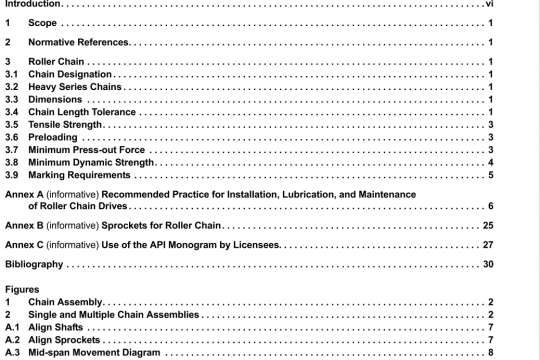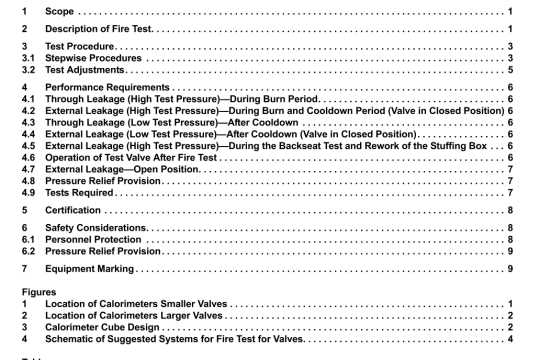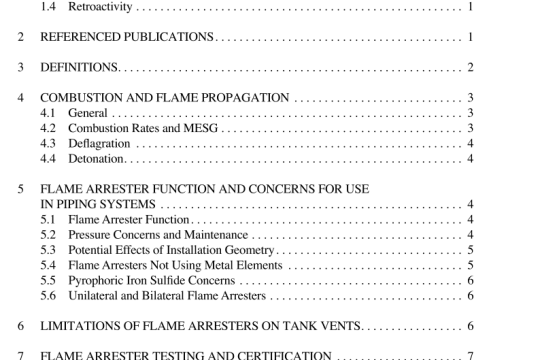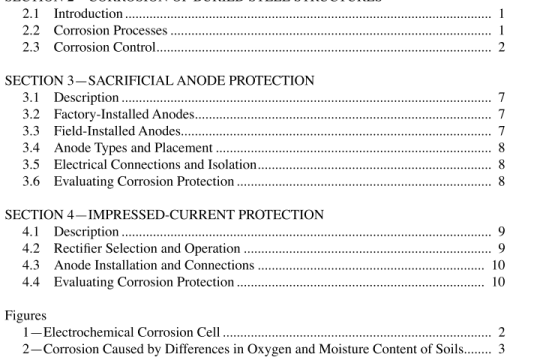API RP 17N:2009 pdf download
API RP 17N:2009 pdf download.Recommended Practice for Subsea Production System Reliability and Technical Risk Management.
The assessment of technical risk should seek to identify “change” factors which introduce uncertainty to the ability of the equipment to operate reliably in the field.
5.2.3 Identification of Scope of Work
The scope of work for any given project stage is the list of activities which will address the identified technical risks. This will usually include activities such as:
— system availability analysis to confirm that design configurations meet economic targets;
— FMECA to identify, address and if possible, design out potential failure modes;
— design reviews to expose designs at various stages to expert opinion;
— testing and analysis to develop understanding of and demonstrate potential for functionality and reliability.
All activities should:
— add value to the project,
— be consistent with the project goals and strategy.
5.3 Plan
The plan establishes the detail of how the reliability scope of work is to be accomplished.
The reliability and technical risk management plan for each project stage will cover areas such as:
— resources (people, software/hardware, etc.);
— roles and responsibilities;
— deliverables for each activity;
— schedules and milestones.
As a project proceeds, the organizations involved will change. The plan should clarify the role/responsibility of the organization within each activity, in terms of:
— specifying requirements,
— completing the work,
— verifying the work meets the requirements.
The plan should only contain what is achievable within schedule and budget constraints, If it is necessary to omit previously identified activities, this should be with clear justification and understanding of the potential consequences (of carrying unmitigated risk).
5.4 Implementing the Plan
The process of implementing the activities at each project stage will involve breaking down the plan into a series of tasks or actions.
These actions need to be tracked and closed out to ensure completion.
In the early stages of a project, the activities may identify more new technical risks and associated actions which need
to be addressed in the same way as the original risks.
Throughout the project, implementation activities provide assurance that:
— potential failure modes that could affect system performance have been analyzed and managed;
— all design decisions are consistent with the RM goals;
— the qualification of equipment has addressed the RM required by the project;
— all documented lessons learned from previous projects have been incorporated;
— the supply chain is fully integrated in to the reliability and technical risk management program;
— the achieved RM performance will allow production, financial and corporate performance goals and requirements to be met.
Implementation of the plan is supported, through the application of good management practices as described in 5.6.
5.5 Feedback
The feedback step provides the formal presentation of information to support decision making at the end of each project stage and also to assist other projects at earlier stages.
At the end of each stage, a documented record should exist of:
— activities completed,
— key findings,
— implemented measures.
This will provide assurance that the technical uncertainties have been addressed (or if not, why not).
A review of the work done is also completed to identify lessons learned such as:
— technical nsks, failures or unwanted events which were not anticipated (but should have been);
— risks that were overestimated and why;
— successes that can be applied to other projects;
— suggested improvements, in the light of experience, in how to complete given activities (resource, schedule, etc.).
The feedback step establishes whether the project stage reliability goals and requirements have or have not been met and includes the success to which the required qualification activities have been implemented.
Feedback from operations to projects is also extremely important. Lessons learnt from operations regarding reliability performance of equipment should be included as an input to projects.




